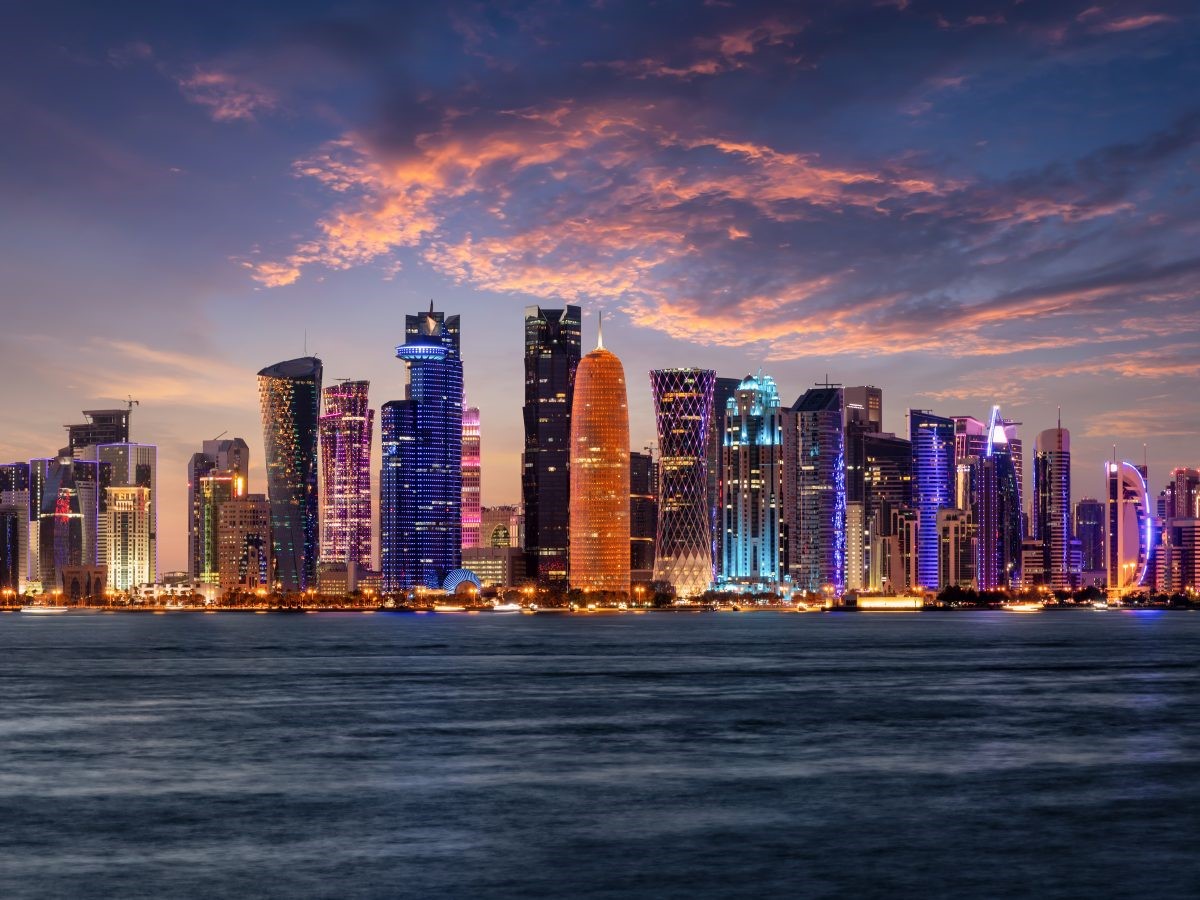
With reporting from Riham Sheble
Qatar’s Emir has approved a controversial new cybercrime law that would punish anyone who creates and shares online content that’s deemed harmful to the country’s “social values” or “general order.”
The wide-ranging law, which specifies fines and jail time for various offenses, also covers acts that are already illegal in Qatar, including hacking into government networks, distributing child pornography and online fraud.
But it is the new so-called content crimes – which were previously mentioned when the law was circulated in draft form – that are drawing the most attention, raising fears about its potential impact on journalism and social media commentary in Qatar.
As part of the new cybercrime law, which was published in Arabic in its entirety by Al Raya, it is illegal to:
- Create or manage a website to spread false news in order to jeopardize the safety of the state, its general order and its local or international peace (penalty: up to three years in prison and/or a maximum fine of QR500,000);
- Spread, air or publish the false news with the same intentions (penalty: up to one year in prison and/or a maximum fine of QR250,000);
- Violate any social values or principles, or publish news, pictures, audio or video recordings related to the personal or family life of individuals – even if it is true (penalty: up to a year in prison and/or a maximum fine of QR100,000);
- Libel or slander another person online or by using IT equipment (penalty: up to a year in prison and/or a maximum fine of QR100,000).
Along with creating the actual content, it’s also a crime under the new law to incite, aid and facilitate the publication of offensive material. It’s not clear how inclusive those terms are, especially when social media platforms are designed for content to be retweeted and shared.
The law also requires telecommunications providers – which right now are Ooredoo and Vodafone – to comply with all prosecutorial requests for evidence.
Service providers must also “block any websites or links when asked by judicial entities.They have to keep users information for a year and temporarily keep record of electronic information, traffic data or content information for 90 days that can be renewed at the request of the investigating entity.”
Many of the law’s provisions were included in the final version of the legislation despite the protests of local and foreign critics.
Matt J. Duffy, a visiting assistant professor at Berry College, told Doha News that the new law leaves much discretion in the hands of authorities:
“We’ll have to see how the Qatar government chooses to use the new powers enacted with the legislation. Hopefully the government won’t use the law to squelch impartial news reporting or social media speech that merely offers dissent and debate on issues of public importance.”
Taking issue
The broadly worded restrictions on publishing “false news,” as well as truthful content about an individual’s “private or family life,” have been criticized for potentially limiting freedom of speech in a country that is home to one of the largest news outlets in the Middle East, the Al Jazeera Media Network.
The released provisions of the law do not explicitly define what constitutes a violation of the country’s social values or what content poses a threat to the state’s security.
That leaves it up to authorities to decide whether to use the new powers to prosecute residents who make the odd controversial comment on social media, or to apply the law only to groups and individuals who pose a serious threat to the government’s authority.
Several media experts contacted by Doha News today were not immediately available to discuss the law.
But last year, when the draft law was floated to the public, then-director of the Doha Center for Media Freedom Jan Keulen criticized it for blurring cybercrime and freedom of expression on the internet.
Rather than restricting online express, “this freedom should be guaranteed,” he told Doha News. (Keulen was fired from his position last December.)
Internationally, media advocacy organization Reporters Without Borders dropped Qatar several spots in its annual press freedom ranking this year because of its concerns that the cybercrime law would further restrict online expression.
Similarly, the US-based Committee to Protect Journalists sent a letter last year to then-Prime Minister Sheikh Hamad bin Jassim Al Thani, stating:
“Countries throughout the Middle East and beyond look to Qatar as a media leader in recognition of your constitution, which guarantees freedom of expression and freedom of press, and in light of Al-Jazeera’s ambitious and expanding global reach…
Qatar should affirm its position as a global media leader by ensuring that the cybercrime bill does not impinge on a free and open Internet, which is a necessary condition for the exercise of press freedom and freedom of expression.”
Chilling effect
In a previous interview, Duffy – an expert on journalism and media laws in the Middle East and a visiting assistant professor at Berry College in the US – told Doha News that provisions in Qatar’s law are problematic.
“There is no country with a good press freedom ranking that has a false news law on the books. The only result is that it has is impeding good journalism.”
Duffy argued that while reporters attempt to be accurate in their accounts, making the publication of “false news” a crime could lead to self-censorship. The norm within the journalism industry to attribute information to sources – who may or may not be truthful in their accounts – makes such demands impossible, he said.

Meanwhile, provisions that prevent reporting on issues that are harmful to the social order are overly broad and have been used elsewhere to limit criticism and dissent, said Duffy, who formerly worked as a journalism and media ethics professor in the UAE before being sacked suddenly in 2012.
He pointed to a social media activist in the Emirates who was sentenced to 10 months in prison for tweeting about a trial and criticizing some of the proceedings under a law prohibiting the spread of “any incorrect, inaccurate, or misleading information which may damage the interests of the state or injures its reputation, prestige, or stature.”
However, few reports of similar cases have emerged in Qatar in recent years.
Apart from a local resident who apparently landed in trouble for insulting an ambassador over Facebook, the most notable exception is Qatari poet Mohammed Rashid al-Ajami.
Al-Ajami – who goes by the name Mohammed Ibn Al-Dheeb in his poetry – was sentenced to 15 years in prison last fall after being allegedly provoked into presenting a poem indirectly critical of this country’s ruling family.
His words were recorded on YouTube, which resulted in a conviction for inciting the overthrow of the government.
Will the new law affect your online activities? Thoughts?







